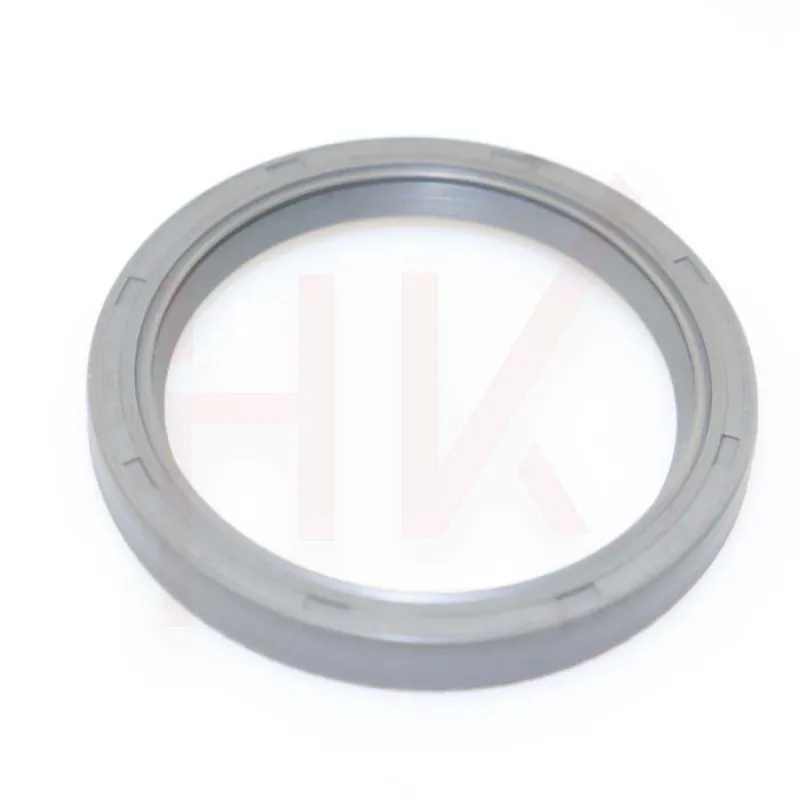નવેમ્બર . 09, 2024 00:12 Back to list
Choosing the Right Oil Seal for Your Pump Application
The Importance of Oil Seals for Pumps
Oil seals, also known as rotary shaft seals, are vital components used in various machinery, particularly pumps. These seals perform an essential function by preventing the leakage of oil and contaminants while ensuring the smooth operation of moving parts. Understanding oil seals' importance and their application in pumps can significantly influence the efficiency and longevity of pumping systems.
What are Oil Seals?
An oil seal is a device used to seal the gaps at the interface between rotating and static components. Typically made from elastomeric materials like rubber, oil seals are designed to withstand specific conditions such as temperature fluctuations, pressure variances, and exposure to chemical substances. They consist of a sealing lip that presses against the rotating shaft, preventing the escape of lubricants and the entrance of dirt or debris.
The Role of Oil Seals in Pumps
Pumps, which are crucial for transferring fluids across various applications, rely heavily on oil seals. These seals ensure that the lubricating oil remains contained within the pump housing, reducing the risk of leakage. Without properly functioning oil seals, pumps can suffer from several challenges
1. Leakage Control Oil seals prevent fluid from escaping the pump's internal mechanisms. Leakage not only presents a safety hazard but also leads to loss of efficiency and increased operating costs.
2. Contamination Prevention In addition to retaining oil, oil seals act as barriers against dust, dirt, and other contaminants that can harm pump components. Contamination can accelerate wear and tear, leading to premature failure.
3. Energy Efficiency A well-sealed pump operates at optimal efficiency. By minimizing losses due to leakage, oil seals help maintain the pump's energy consumption at a manageable level. This is especially crucial in large-scale industrial applications where energy costs can be significant.
4. Extended Equipment Life By protecting the internal components of a pump from both leakage and external contamination, oil seals contribute to the longevity of the pump. Well-maintained equipment is less likely to experience unexpected breakdowns, leading to reduced downtime and maintenance costs.
oil seal for pump

Choosing the Right Oil Seal
When selecting an oil seal for your pump, several factors should be considered
- Material The choice of material plays a significant role in the seal's performance. Common materials include Nitrile, Viton, and Silicone, each offering different resistance to temperature, pressure, and chemicals. For instance, Viton seals are more suitable for high-temperature applications, while Nitrile seals are typically used in standard conditions.
- Size and Fit It is crucial to choose an oil seal that fits the pump precisely. An inadequately sized seal can lead to leaks or impede the movement of the rotating shaft, resulting in increased wear and reduced efficiency.
- Operating Conditions The seal must be suitable for the specific conditions of your application. Investigate factors such as temperature extremes, pressure levels, and the types of fluids involved.
- Lubrication Determine whether the oil seal requires external lubrication or if it will operate with a self-lubricating design. This consideration can affect the frequency of maintenance and the overall performance of the pump.
Regular Maintenance and Inspection
To ensure the optimal performance of oil seals, regular maintenance and inspection are essential. Over time, seals can wear out due to friction, heat, or exposure to harsh chemicals. Signs of a failing oil seal include visible leakage, unusual noises during operation, or a drop in pump efficiency. Early detection and replacement of worn seals will prevent more extensive damage to the pump and ensure its reliable performance.
Conclusion
Oil seals play an integral role in the functionality and reliability of pumps. They secure the integrity of lubricants while protecting against contaminants, significantly enhancing the efficiency and lifespan of the equipment. By selecting the right seals and adhering to regular maintenance practices, operators can ensure the longevity and performance of their pumps, resulting in reduced operational costs and increased productivity.
-
The Trans-formative Journey of Wheel Hub Oil Seals
NewsJun.06,2025
-
Graphene-Enhanced Oil Seals: Revolutionizing High-Pressure Oil Sealing
NewsJun.06,2025
-
Future of Hydraulic Sealing: Advanced Intelligent TCN Oil Seals
NewsJun.06,2025
-
Don’t Let a Broken TCV Oil Seal Ruin Your Day
NewsJun.06,2025
-
Bio-Inspired Dust Seals for Better Sealing Performance
NewsJun.06,2025
-
Biodegradable and Sustainable Hydraulic Seal Materials
NewsJun.06,2025
-
Top Oil Seal Solutions for Your Industrial Needs
NewsMay.22,2025
Products categories
















